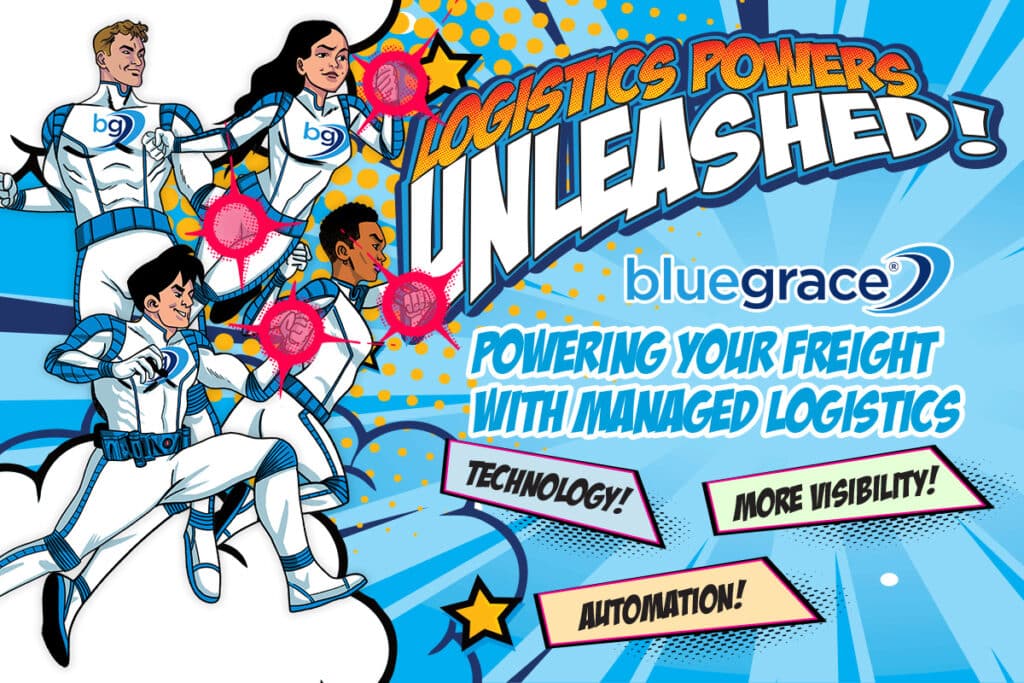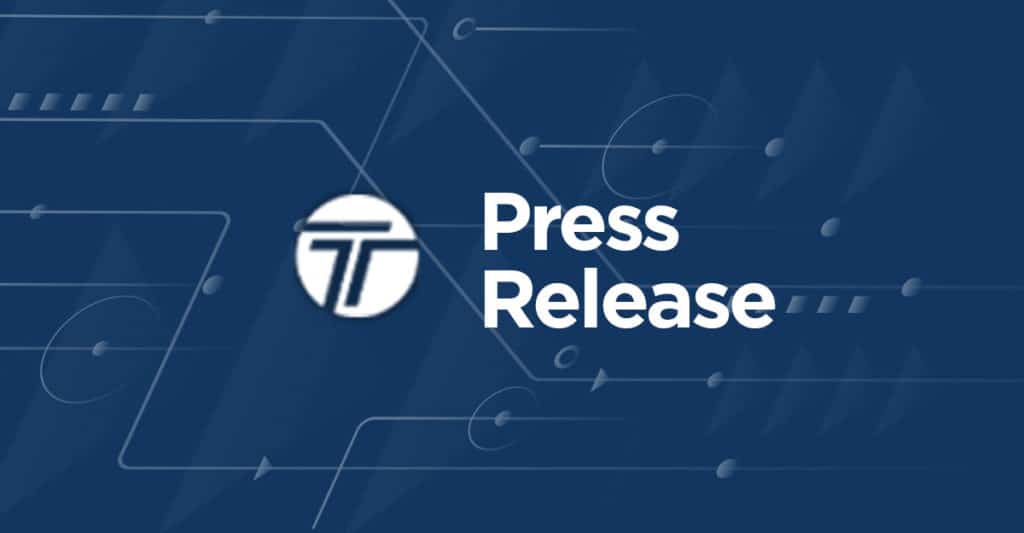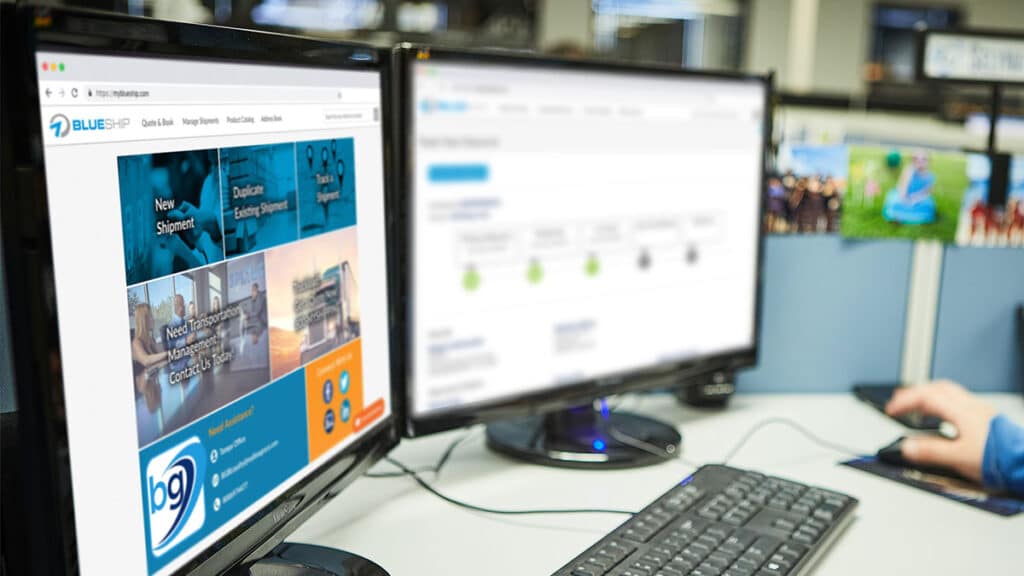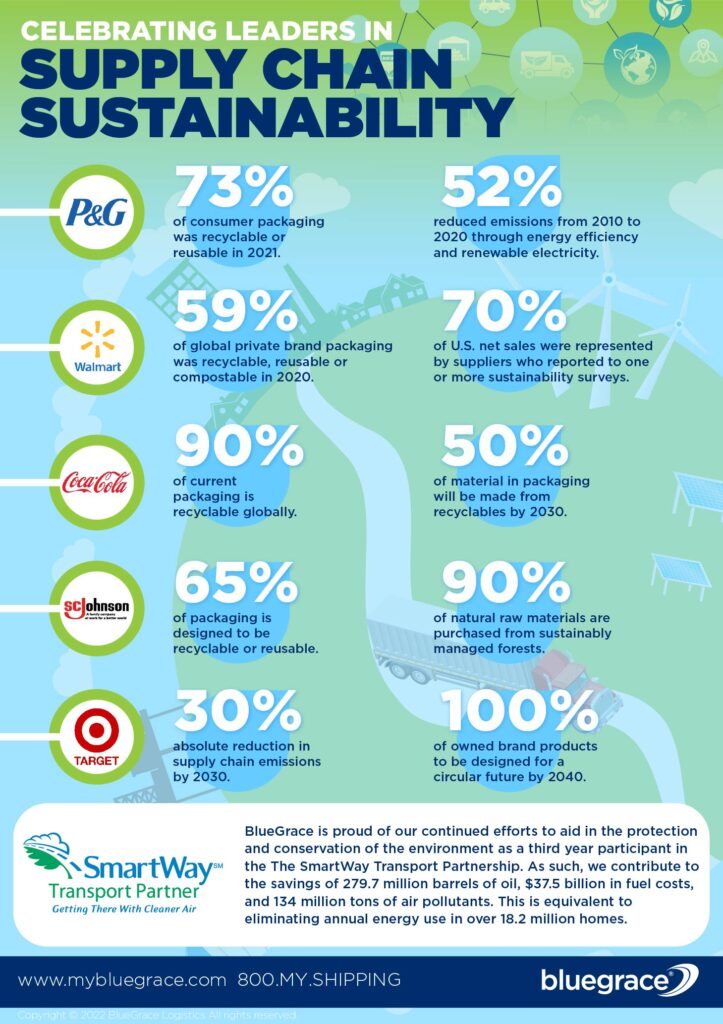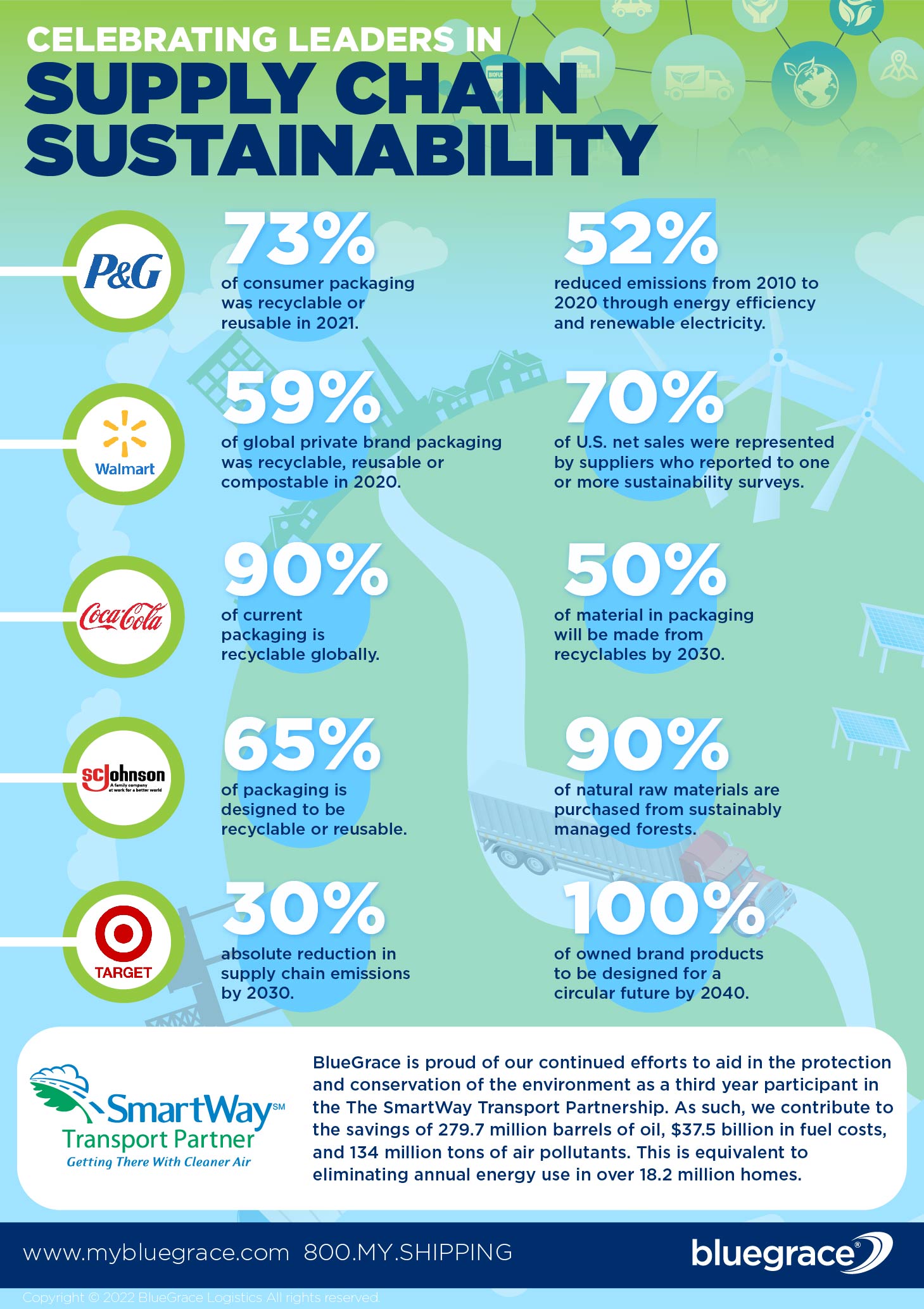Supply chain sustainability refers to companies’ efforts to consider the environmental and human impact of their products’ journey through the supply chain, from raw materials sourcing to production, storage, delivery and every transportation link in between.
This Earth Week, we wanted to spotlight the companies who are leading the way in supply chain sustainability efforts. Below are just a few of the many ways that these companies are paving the way to a greener tomorrow.
Proctor & Gamble
In 2021, 73% of Proctor & Gamble‘s consumer packaging was recyclable or reusable. This is a continued effort to work towards 100% recyclable or reusable consumer packaging. From 2010 to 2020, they also reduced emissions across their global operations 52% through energy efficiency and renewable electricity.
Walmart
Approximately 70% of Walmart U.S. net sales were represented by suppliers who reported to one or more sustainability surveys. Along with working with their suppliers and the broader retail consumer packaged goods industry to optimize packaging, 59% of their global private brand packaging was recyclable or reusable in 2020. By 2025, their goal is to be at 100%.
Coca-Cola
Coca-Cola is committed to rethinking how products get to consumers, including what kind of packaging is used and whether a package is needed at all. Currently at 90%, their goal is to make 100% of packaging recyclable globally by 2025. This also includes using at least 50% recycled material in packaging by 2030, and their Science Based Target (SBT) is to reduce greenhouse gas emissions 25% across the entire value chain by 2030.
SC Johnson
SC Johnson‘s commitment to making a better world includes a continued effort to drive progress. They’ve committed to making 100% of plastic packaging recyclable or reusable, along with tripling the amount of post-consumer recycled (PCR) plastic content, by 2025. Currently, 65% of packaging is designed to be recyclable or reusable – up from 62% in 2019. 90% of their raw materials are purchased from sustainably managed forests.
Target
Target plans to make 100% of its private label products environmentally sustainable by designing items that are more durable, and eliminate waste and encourage reuse by 2040. As part of their Target Forward strategy, Target also commits to achieve 30% absolute reduction in supply chain emissions (scope 3) by 2030.
BlueGrace’s Commitment
BlueGrace is proud of our continued efforts to aid in the protection and conservation of the environment as a participant in the The SmartWay® Transport Partnership. As such, we contribute to supply chain sustainability and the savings of 279.7 million barrels of oil, $37.5 billion in fuel costs, and 134 million tons of air pollutants. This is equivalent to eliminating annual energy use in over 18.2 million homes.

